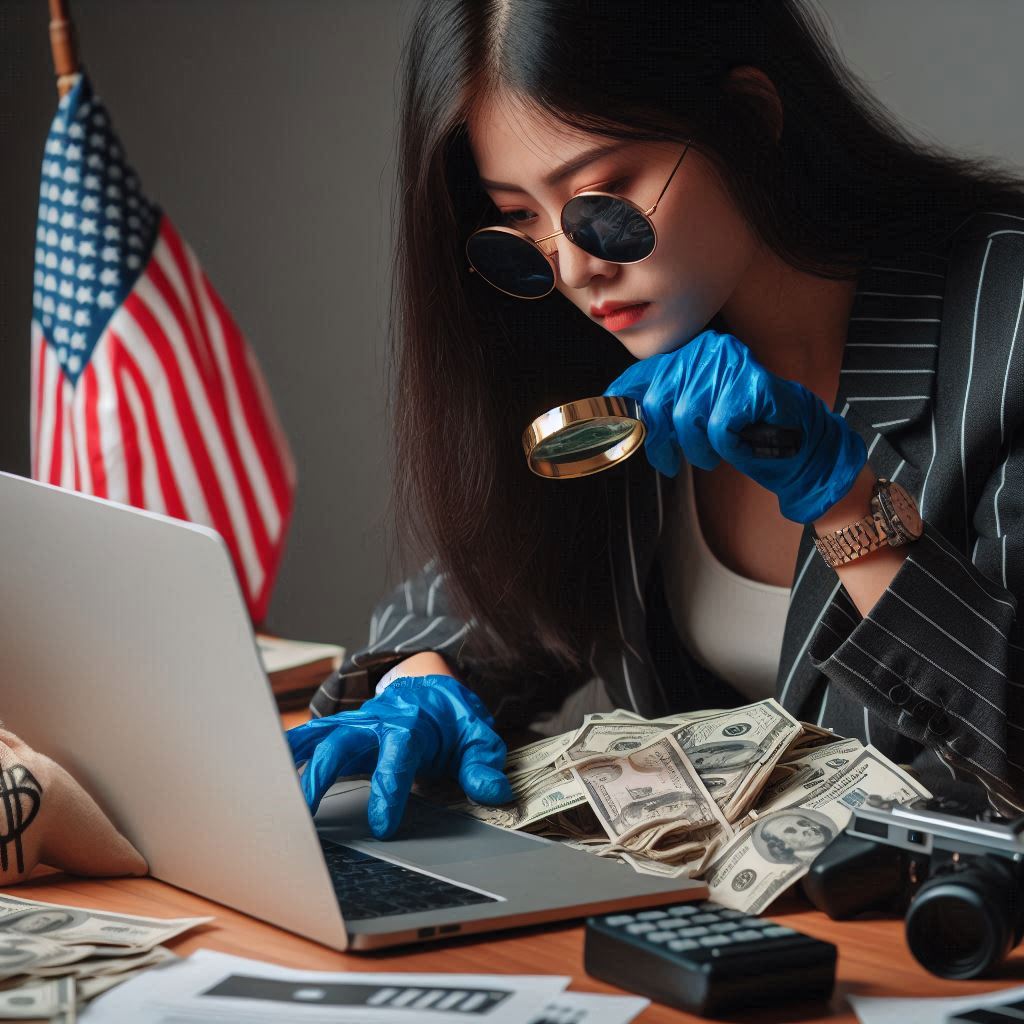Introduction
Jury consultants play a critical role in the legal system. They help attorneys select jurors and develop trial strategies.
Their work ensures fair trials and effective presentations. Jury consultants analyze juror behavior and attitudes.
This helps lawyers tailor arguments to resonate with jurors. Effective jury consulting can influence trial outcomes significantly.
The education requirements for jury consultants are essential. A strong educational background equips consultants with necessary skills and knowledge.
Most jury consultants hold at least a bachelor’s degree. Degrees in psychology, sociology, or law are common.
These fields provide insights into human behavior and legal processes. Advanced degrees can further enhance a consultant’s expertise.
A master’s degree or Ph.D. in relevant fields is advantageous.
In addition to formal education, specialized training is crucial. Many jury consultants complete courses in trial consulting.
Professional organizations offer certifications and training programs. These programs focus on jury selection techniques and trial strategy.
Ongoing education is also vital in this field. Staying updated with new research and methodologies ensures effectiveness.
Education requirements highlight the importance of expertise in jury consulting.
Thorough knowledge and specialized training enable consultants to perform their roles effectively.
This contributes to fair and just legal proceedings. Investing in education and continuous learning is crucial for success in this profession.
In essence, jury consultants’ education requirements emphasize the need for a solid educational foundation.
This ensures consultants are well-equipped to support attorneys and contribute to the legal system’s integrity.
Education Requirements
Having the right education is crucial for aspiring jury consultants who wish to excel in this field.
The education requirements for jury consultants vary depending on the specific role and employer.
However, there are some common educational paths that can help individuals prepare for a career in this field.
Bachelor’s Degree
A Bachelor’s degree is typically the minimum educational requirement for most jury consultant positions.
The degree should be in a relevant field such as psychology, sociology, criminal justice, or law.
Transform Your Career Today
Unlock a personalized career strategy that drives real results. Get tailored advice and a roadmap designed just for you.
Start NowThese disciplines provide a solid foundation for understanding human behavior, social dynamics, and the legal system – all of which are essential for a successful career as a jury consultant.
Master’s Degree or Higher
While a Bachelor’s degree is sufficient for many entry-level positions, some jury consultant roles may require a Master’s degree or higher.
A Master’s degree in fields such as psychology, sociology, or law can provide more in-depth knowledge and specialized training that can be beneficial in this competitive field.
Specialized Training
In addition to formal education, specialized training in social science research methods and data analysis is essential for jury consultants.
This training equips professionals with the necessary skills to conduct effective research, analyze data, and interpret findings – all of which are critical aspects of the job.
Overall, a combination of formal education, advanced degrees, and specialized training is essential for individuals pursuing a career as a jury consultant.
By acquiring the right educational qualifications and honing their skills in research and data analysis, aspiring jury consultants can position themselves for success in this challenging yet rewarding field.
Read: Top Law Schools for Civil Rights Advocacy
Skills and Experience
Strong analytical and critical thinking skills
Jury consultants must possess strong analytical and critical thinking skills. These skills enable them to assess complex information quickly and accurately.
They analyze data from various sources, including demographic studies, case materials, and potential juror questionnaires.
Their ability to think critically helps them identify patterns and predict juror behavior.
Strong analytical skills also allow them to interpret subtle cues during juror interviews. This insight aids in the selection of a favorable jury.
Being analytical and critical ensures they provide valuable insights to legal teams.
Excellent Communication and Interpersonal Skills
Excellent communication and interpersonal skills are essential for jury consultants. They must convey complex information in an understandable manner.
Effective communication ensures that their analyses and recommendations are clear to attorneys and clients.
Interpersonal skills help them build rapport with clients, witnesses, and jurors. They need to ask insightful questions and listen carefully to responses.
Good communication also involves being persuasive and negotiating effectively.
These skills enable them to influence decisions and contribute to the overall strategy.
Strong interpersonal abilities foster trust and cooperation, enhancing their effectiveness.
Experience in the Legal Field or with Jury Trials
Experience working in the legal field or with jury trials is highly preferred for jury consultants.
Transform Your Career Today
Unlock a personalized career strategy that drives real results. Get tailored advice and a roadmap designed just for you.
Start NowPractical knowledge of legal processes and trial dynamics provides a solid foundation.
Familiarity with courtroom procedures and legal terminology ensures they can operate effectively.
Previous work with jury trials offers firsthand insights into juror behavior and decision-making.
This experience allows them to anticipate challenges and devise effective strategies.
Working closely with legal professionals hones their skills in case analysis and jury selection.
This background makes them valuable assets to legal teams, enhancing their contributions to trial success.
In short, strong analytical skills, excellent communication, and relevant legal experience are vital for effective jury consultants.
These attributes enable them to provide critical support in jury selection and trial strategy.
Read: What Does a Jury Consultant Do? Job Overview
Licensing and Certification
In the field of jury consulting, having the appropriate licensing and certification can be crucial for ensuring credibility and expertise.
Let’s delve deeper into what these requirements entail and why they are important.
State Licensing Requirements
While not all states may have specific licensing requirements for jury consultants, it is essential to research and understand the regulations in your particular state.
Some states may mandate that jury consultants hold a license to practice legally within their jurisdiction.
Certification Programs
Professional organizations like the American Society of Trial Consultants (ASTC) offer certification programs for jury consultants.
These programs typically involve undergoing training, passing examinations, and fulfilling certain criteria to demonstrate expertise in the field.
Benefits of Certification
Obtaining certification from recognized organizations can showcase your commitment to professionalism and continuous learning.
It can enhance your reputation as a jury consultant and increase your credibility among clients and peers.
Continuing Education Requirements
Maintaining certification often involves fulfilling continuing education requirements.
This could include attending workshops, conferences, or completing online courses to stay updated on the latest trends and practices in the field of jury consulting.
Professional Development
Continuing education not only helps jury consultants stay current with industry developments but also allows them to refine their skills and expand their knowledge base.
Transform Your Career Today
Unlock a personalized career strategy that drives real results. Get tailored advice and a roadmap designed just for you.
Start NowIt is a valuable way to ensure ongoing professional growth and relevance in the field.
Networking Opportunities
Engaging in continuing education activities can also provide valuable networking opportunities.
By interacting with other professionals in the field, jury consultants can exchange ideas, collaborate on projects, and stay connected with the broader legal community.
In fact, obtaining licensing and certification as a jury consultant can significantly enhance your professional standing and credibility.
By investing in continuing education and staying updated on industry best practices, you are positioning yourself for success in this competitive field.
Read: Career Path: Civil Rights Advocacy

Internship and Practical Experience
Many employers look for candidates with internship experience in a legal setting
Internships in a legal setting can provide students with real-world experience and practical skills that are crucial for success in the field of jury consulting.
Many employers specifically seek out candidates who have completed internships because they are seen as more prepared and knowledgeable about the industry.
Hands-on experience working with jury trials and case preparation
Having hands-on experience working with jury trials and case preparation is essential for a jury consultant.
This type of experience allows individuals to understand the dynamics of a courtroom, the legal process, and the specific challenges that come with working on a trial.
Practical experience in these areas can set a candidate apart from others applying for the same position.
Networking opportunities with experienced jury consultants
Networking opportunities with experienced jury consultants can be invaluable for those looking to enter the field.
Building relationships with professionals who have been successful in the industry can provide mentorship, guidance, and potential job opportunities in the future.
Attending events, workshops, and conferences can enhance a candidate’s network and open doors for future collaborations.
In general, internship and practical experience are crucial for aspiring jury consultants.
These opportunities provide individuals with the skills, knowledge, and connections needed to succeed in this competitive field.
It is important for candidates to actively seek out internships, gain hands-on experience, and network with professionals in order to advance their careers in jury consulting.
Read: Day in the Life of a Civil Rights Lawyer
Advanced Training and Professional Development
Opportunities for further education and training in specialized areas of jury consulting
Continuing education is essential for jury consultants to stay ahead in their field.
Advanced training programs offer specialized courses that focus on different aspects of jury consulting.
Transform Your Career Today
Unlock a personalized career strategy that drives real results. Get tailored advice and a roadmap designed just for you.
Start NowThese programs provide in-depth knowledge and skill development in areas such as jury selection, case analysis, and witness preparation.
Attendance at conferences, workshops, and seminars to stay current with industry trends
Attending conferences, workshops, and seminars is another crucial aspect of professional development for jury consultants.
These events offer the opportunity to network with industry experts, learn about recent trends and developments, and gain insights into best practices.
Staying current with industry trends is vital for providing effective consulting services to clients.
Professional development to enhance skills in areas such as trial strategy and witness preparation
Professional development activities also focus on enhancing skills in critical areas such as trial strategy and witness preparation.
Jury consultants need to be well-versed in developing effective trial strategies that align with their client’s objectives.
Additionally, they must have the expertise to prepare witnesses for testimony, ensuring they are confident and credible in front of a jury.
Career Prospects and Growth Opportunities
Demand for jury consultants is expected to grow in the coming years
The increasing complexity of legal cases drives the demand for jury consultants.
Attorneys seek their expertise to enhance trial outcomes. As the legal landscape evolves, the need for skilled consultants becomes more pronounced.
This trend indicates a promising job market for aspiring jury consultants.
Opportunities for advancement to senior or management positions
Jury consultants can advance to senior roles with experience and proven success.
They can oversee teams and manage complex cases. Management positions offer higher salaries and greater responsibilities.
These roles often involve strategic decision-making and client relationship management. Career growth in this field rewards expertise and leadership skills.
Potential to specialize in specific areas of jury consulting such as jury selection or trial strategy
Specializing in jury selection allows consultants to master the art of voir dire. They analyze potential jurors’ backgrounds and biases to assist attorneys.
Another specialization is trial strategy, where consultants develop comprehensive case presentations. They craft persuasive arguments and identify key evidence.
Specialization enhances a consultant’s value and marketability in the legal industry.
In summary, the career prospects for jury consultants are bright. Demand is rising, offering ample opportunities for those entering the field.
Advancement to senior or management roles is achievable with experience.
Specializing in areas like jury selection or trial strategy can further elevate a consultant’s career.
The evolving legal landscape ensures a steady need for skilled jury consultants, making it a rewarding career choice.
Transform Your Career Today
Unlock a personalized career strategy that drives real results. Get tailored advice and a roadmap designed just for you.
Start NowConclusion
When it comes to becoming a successful jury consultant, education requirements play a crucial role in shaping your career.
Having a solid educational foundation in fields such as psychology, sociology, or law is essential for understanding human behavior and legal processes.
In addition to education, jury consultants need strong communication, analytical, and research skills to effectively assist legal teams in selecting juries.
For those aspiring to become jury consultants, it is important to pursue continuous professional development to stay current in this dynamic field.
By acquiring the necessary education and gaining experience, aspiring jury consultants can position themselves for success in this rewarding and challenging career.
[E-Books for Sale]
The Big Book of 500 High-Paying Jobs in America: Unlock Your Earning Potential
$19.99 • 500 High-Paying Jobs • 330 pages
Explore 500 high-paying jobs in America and learn how to boost your career, earn more, and achieve success!
See All 500 High-Paying Jobs of this E-Book
1001 Professions Without a Degree: High-Paying American Jobs You Can Start Now
$19.99 • 1001 Professions Without a Degree • 174 pages
Discover 1001 high-paying jobs without a degree! Unlock career tips, skills, and success strategies for just $19.99!




